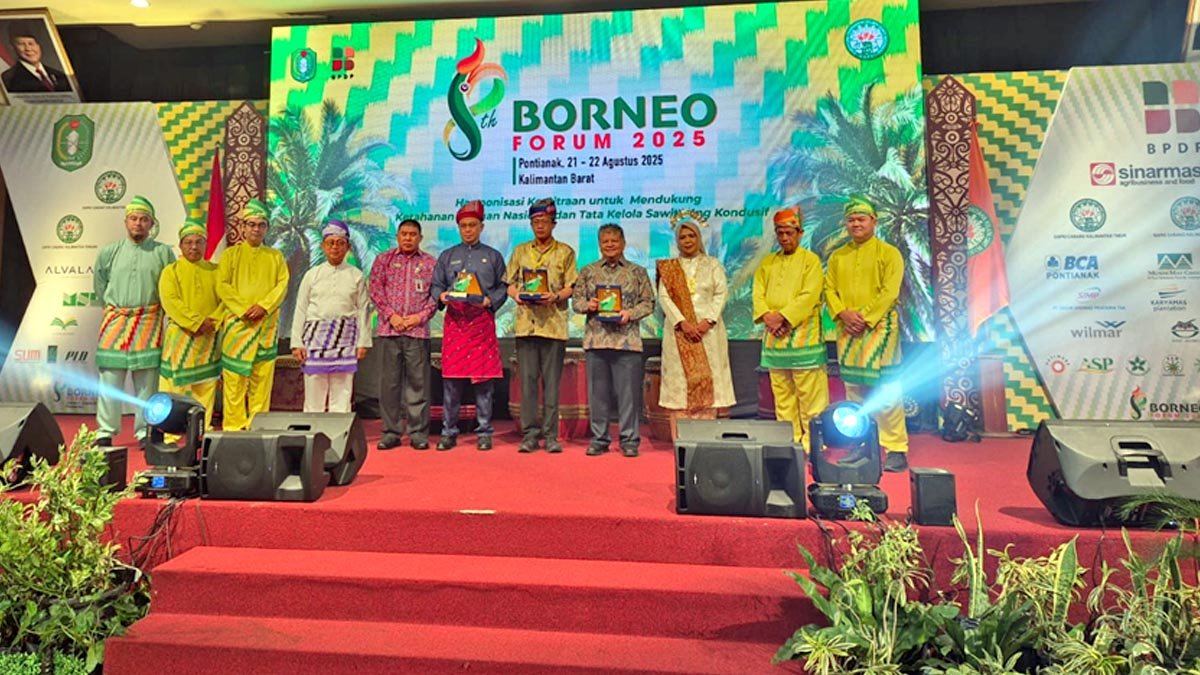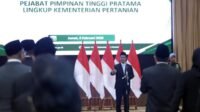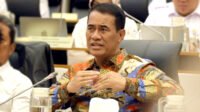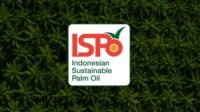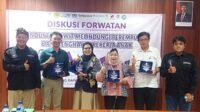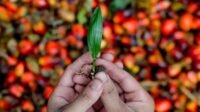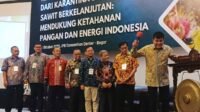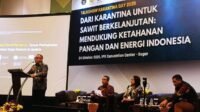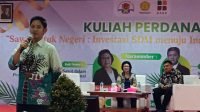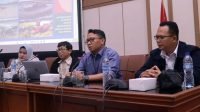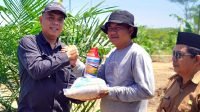PALMOILMAGAZINE, PONTIANAK – The Ministry of Agriculture (MoA) emphasized the importance of building harmonious, inclusive, and fair partnerships to support the sustainability of Indonesia’s palm oil sector. This message was delivered at the 8th Borneo Forum 2025 held in Pontianak, West Kalimantan, on Thursday (August 21) under the theme “Harmonizing Partnerships to Support National Food Security and a Conducive Palm Oil Governance.”
Minister of Agriculture Andi Amran Sulaiman expressed his appreciation to the Indonesian Palm Oil Association (GAPKI), particularly its West Kalimantan branch, for organizing the forum. He noted that this initiative aligns with President Prabowo’s directive to accelerate farmer welfare through downstream development.
“The plantation downstream strategy includes product diversification, strengthening partnerships, expanding market access, international trade diplomacy, certification, as well as improving food quality and safety,” Amran stated.
Also Read: West Sulawesi Plantation Office Monitors Palm Oil Prices and Processing in Pasangkayu
Acting Director General of Plantations, Abdul Roni Angkat, added that Kalimantan—known as the “heart of Indonesia’s palm oil industry”—is a strategic location for hosting this prestigious forum.
“As one of the flagship plantation commodities, palm oil plays a major role in contributing to state revenue, creating millions of jobs, and driving local economies,” said Roni, quoted by Palmoilmagazine.com from the Directorate General of Plantations website.
However, he also pointed out that the sector continues to face challenges such as sustainable governance, certification, deforestation, and global market volatility.
“The government’s commitment to positioning palm oil as a pillar of both the economy and national food security remains firm. But comprehensive breakthroughs are needed, especially to raise productivity in smallholder plantations,” Roni stressed.
Currently, Indonesia’s total oil palm plantation area reaches 16.83 million hectares, with 58% (9.89 million ha) managed by private and state-owned companies and 42% (6.9 million ha) managed by smallholders. Low smallholder productivity—averaging only 3–4 tons of CPO per hectare—remains a key challenge to overcome.
Addressing this, Director of Oil Palm and Other Perennial Crops, Baginda Siagian, highlighted the need to strengthen four pillars of palm oil partnerships:
- Business Partnerships – strengthening nucleus-plasma schemes, technology transfer, and improving farmer welfare.
- Environmental Partnerships – ensuring sustainability through eco-friendly practices, zero burning, and supply chain traceability.
- Marketing Partnerships – expanding global market access and promoting positive narratives about Indonesian palm oil.
- Research and Innovation Partnerships – fostering collaboration among government, industry, and academia to develop superior seeds, high-value derivatives, and efficiency-driven technologies.
Baginda also noted the potential of integrating palm oil with livestock and food crops through palm–cattle integration and intercropping with upland rice or maize, which could significantly contribute to national food security.
Roni further emphasized that the Borneo Forum 2025 should serve as an important momentum to strengthen collaboration among central and local governments, industry players, and farmers. Such synergy is crucial for advancing strategic programs such as Smallholder Palm Oil Replanting (PSR), human resource development, and improving plantation infrastructure.
“This forum is a valuable platform for dialogue. Let’s make the Borneo Forum 2025 a launching point to strengthen harmonization. Only through synergy can we achieve strong national food security and a conducive palm oil governance for all stakeholders,” he concluded.
As part of the event, GAPKI West Kalimantan branch also donated one ton of upland rice seeds to the Plantation Protection Center (BPTP) Pontianak for planting in Landak Regency, West Kalimantan. (P3)

